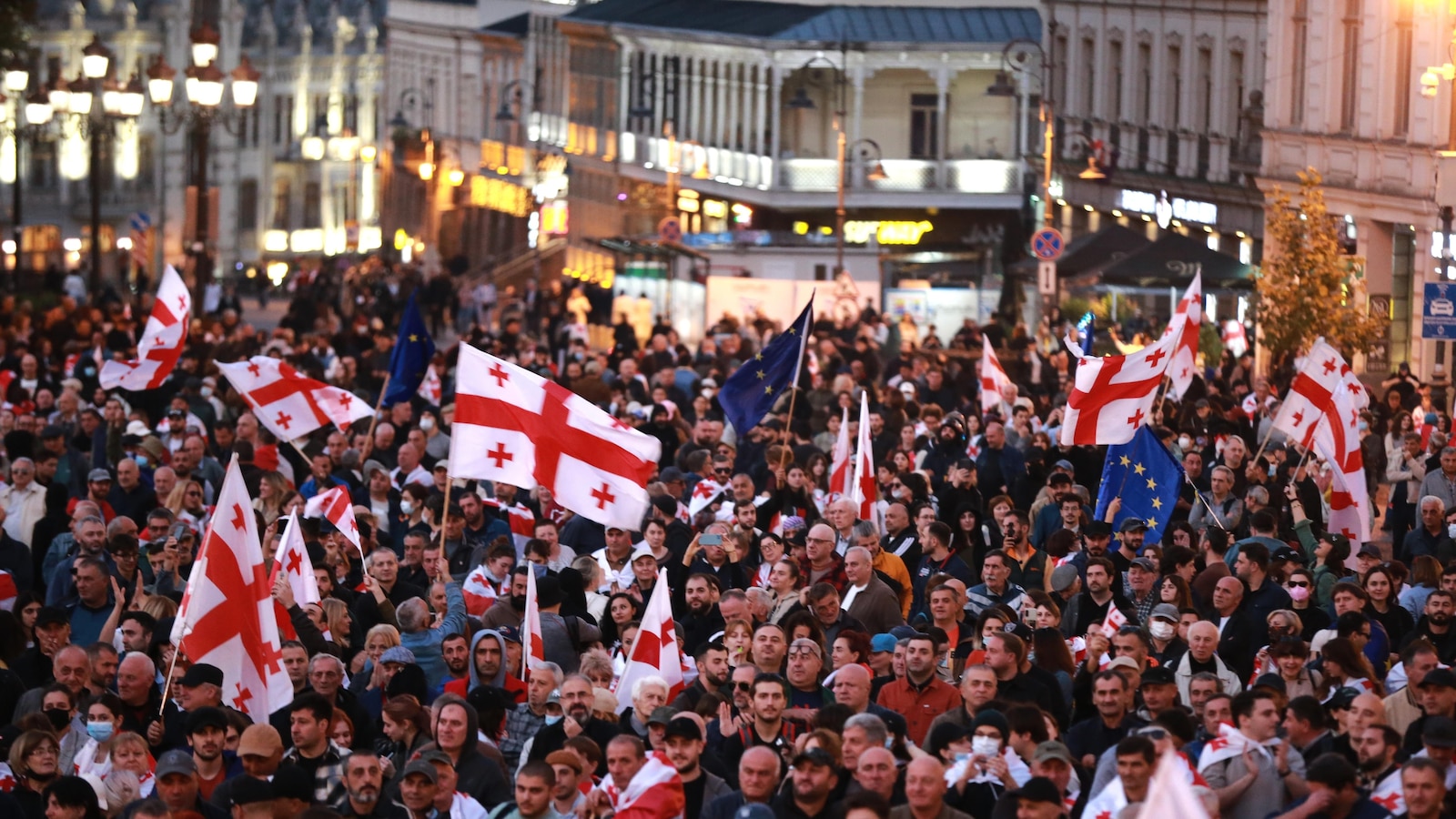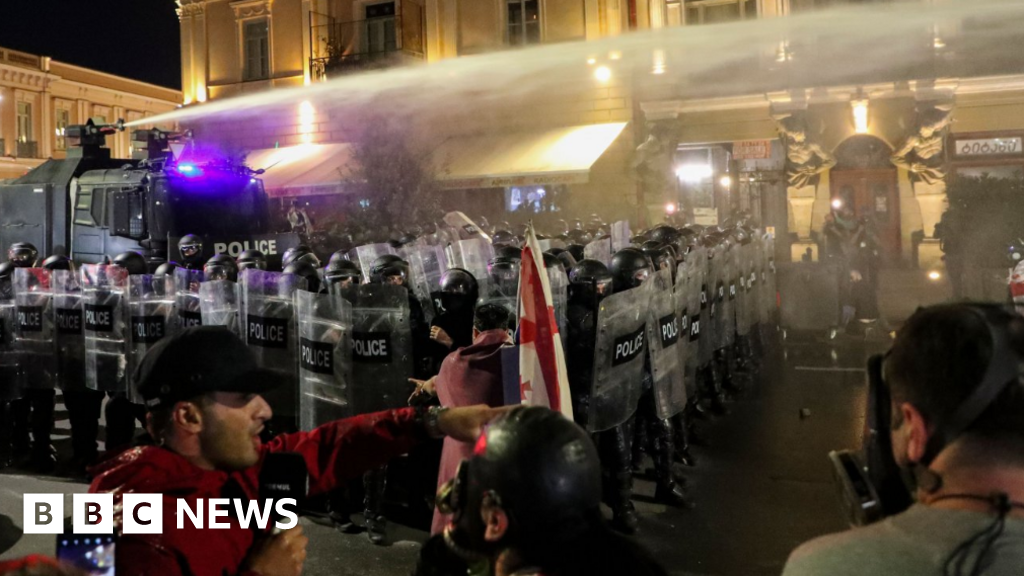Georgian Police Use Force Against Pro-EU Protesters Near Presidential Palace
Georgian police used water cannons and pepper spray to disperse pro-EU protesters marching against the government's suspension of EU talks, sparking unrest and mass arrests.
Overview
- Police in Georgia deployed water cannons, pepper spray, and security forces to disperse protesters attempting to storm the presidential palace during anti-government demonstrations.
- Protesters, carrying EU membership flags, marched against the government's policies, specifically the ruling Georgian Dream party's suspension of EU accession talks.
- The demonstrations escalated into widespread unrest, with police responding to the protests with mass arrests and significant use of force against the participants.
- The protests were also fueled by opposition's snub of local elections and concerns over government actions perceived as undermining democratic processes.
- Critics have raised concerns that new laws targeting demonstrators in Georgia bear resemblance to restrictive legislation previously enacted in Russia.
Report issue

Read both sides in 5 minutes each day
Analysis
Center-leaning sources frame this story by consistently portraying the Georgian government as repressive and authoritarian, using strong, evaluative language to describe its actions. They emphasize the government's "crackdown on dissent" and "police violence," while highlighting the democratic aspirations of protesters. This collective editorial choice shapes a narrative where the government is the antagonist against a populace seeking democratic freedoms.
Articles (3)
Center (3)
FAQ
The Georgian Dream government suspended EU accession talks citing protection of national sovereignty and rejecting EU reform conditions, viewed as a pivot away from democratic commitments and toward the Russian sphere of influence.
Protests were triggered by the government's suspension of EU accession talks, disputed 2024 parliamentary elections, new restrictive laws targeting demonstrators and civil society, and concerns over undermining democratic processes.
The EU suspended parts of the visa facilitation agreement, withheld funding, suspended high-level political dialogue, and threatened sanctions to pressure Georgia to uphold democratic norms and EU commitments.
The 2024 elections were widely disputed by opposition and observers for vote rigging and widespread electoral fraud, including use of stolen IDs, leading to rejection of results by the European Parliament.
New laws include a Foreign Agents Registration Act targeting NGOs, restrictions on foreign funding for media, politicizing civil service appointments, and bills banning opposition-linked parties, resembling Russian restrictive legislation.
History
- This story does not have any previous versions.



